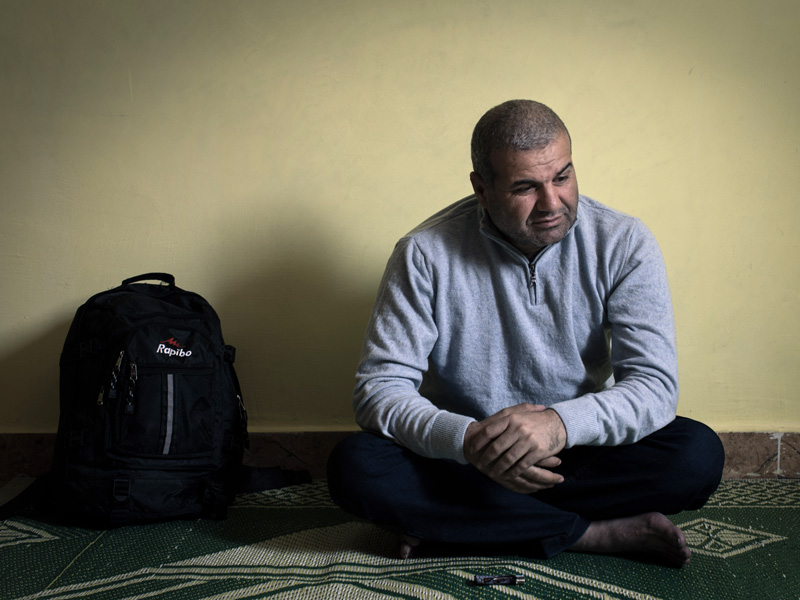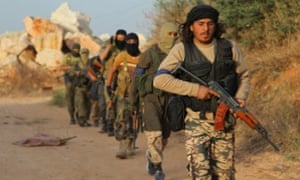
'He isn’t particularly political. He’s just a 37-year-old civil servant at the regional water board. He runs the computer department, and it’s his job to print the bills every month for the residents of Damascus and the surrounding countryside. He focuses on the water business, and minds his own.
But today, none of that will matter. The regime is going from house to house, rounding up all the men they find. Whether it’s because they’re Sunni, living in a country run by Alawites, an offshoot of the Shia, Hashem can only speculate.
Hashem’s children watch him as he goes to open the door. Outside stand 20 men. Whether they’re from the army, the police, or a pro-regime militia, Hashem doesn’t know. But they’re here for him, and half the people on his street.
Until now the war has largely avoided Haran al-Awamid, a place of around 15,000 a few miles south-east of Damascus. It’s a quiet town with a lot of government employees. But in recent days, tensions have been raised. The regime killed two young men, tied their corpses to a car, and dragged them around town. Not everyone dared to react, but the pair’s friends and family did – they protested and chanted in the street.
And now, as Hashem is shoved into the back of a van, his children watching from their front room, the regime is getting its revenge. It’s a long revenge, too. First Hashem and his neighbours are taken to a secret network of cells, dug deep beneath the nearby Damascus airport. Three days later, they’re moved on – to the headquarters of aviation intelligence in Damascus.
Here, hundreds of men are crammed into single cells, deep underground. Every day, four or five of them are dragged to torture rooms. Single men are electrocuted with shocks to their genitals. Husbands like Hashem are sometimes spared that humiliation, but instead are hung from their wrists. Hashem spends 12 hours like this, the cords cutting into his skin. Others spend even longer and their hands later have to be amputated.
After several weeks, he’s moved to some kind of airport hangar. It’s a vast space, capable of holding a few planes. But there are so many prisoners crammed in here that they have to take it in turns to lie down. With no watches or natural light, they have no way of telling the time.
One day, months later, the prisoners are driven in vans to the centre of Damascus, where they’re tossed out into the street. They have no idea that it’s now late October, or that today is the festival of Eid al-Adha. They emerge blinking into the bright sunlight wondering what kind of Syria awaits them.
For Hashem, the future is immediately bleak. While he was away, two of Hayam’s brothers were shot by the same sniper on the same day. The second was trying to retrieve the corpse of the first.'













